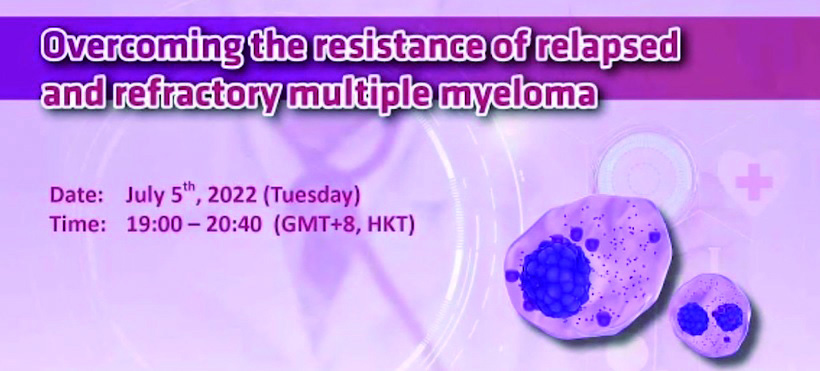
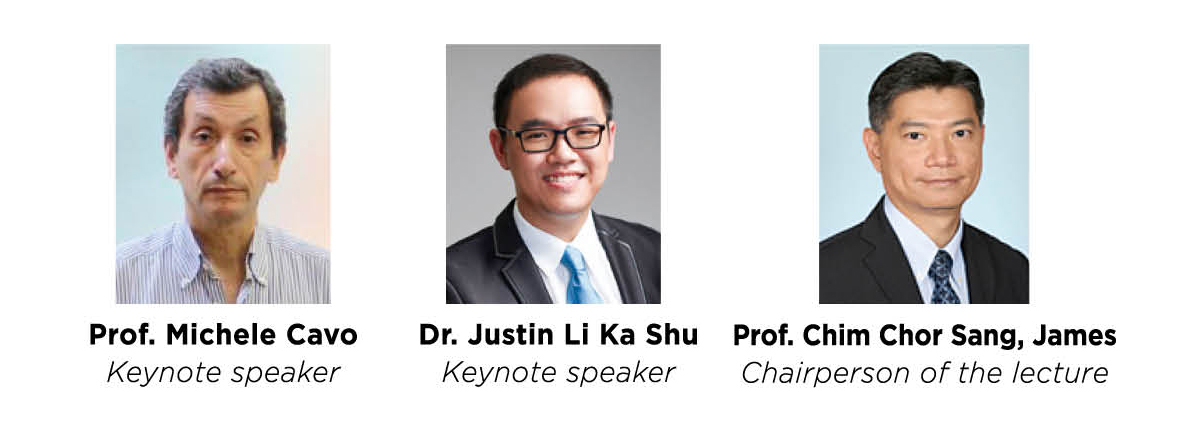
The immunomodulatory drugs (IMiDs), lenalidomide-based therapies in particular, have significantly improved the survival of patients with multiple myeloma (MM), and thus are recommended in various clinical guidelines. Nonetheless, a substantial proportion of patients will develop relapsed disease or refractory to the therapy (RRMM) upon certain exposure. While pomalidomide is an important therapy for MM patients who have developed the second relapse for its ability to overcome lenalidomide resistance, the outcomes of pomalidomide-based therapies can be improved by optimising the combinations of the IMiD-based treatments.
On 5th July, 2022, a hybrid lecture organised by the Hong Kong Society of Myeloma titled “Overcoming the Resistance of Relapsed and Refractory Multiple Myeloma” has been successfully organised. In the lecture, Prof. Michele Cavo of the Bologna University School of Medicine presented his insights on the sequencing strategy of IMiDs and the real-world data of pomalidomide-based regimens in RRMM. He shared a case of practical MM management with pomalidomide-based therapy as well. In addition, Dr. Justin Li Ka Shu of the Tuen Mun Hospital presented the management history of a MM patient who had been fighting against RRMM with multiple lines of the therapies for about 9 years. Dr. Li highlighted the wide spectrum of factors to be considered in choosing the optimal regimen for the patients at each stage of treatment. The lecture was followed by fruitful discussion among the keynote speaker and audiences.

Discussion session moderated by Prof. James Chim (right)
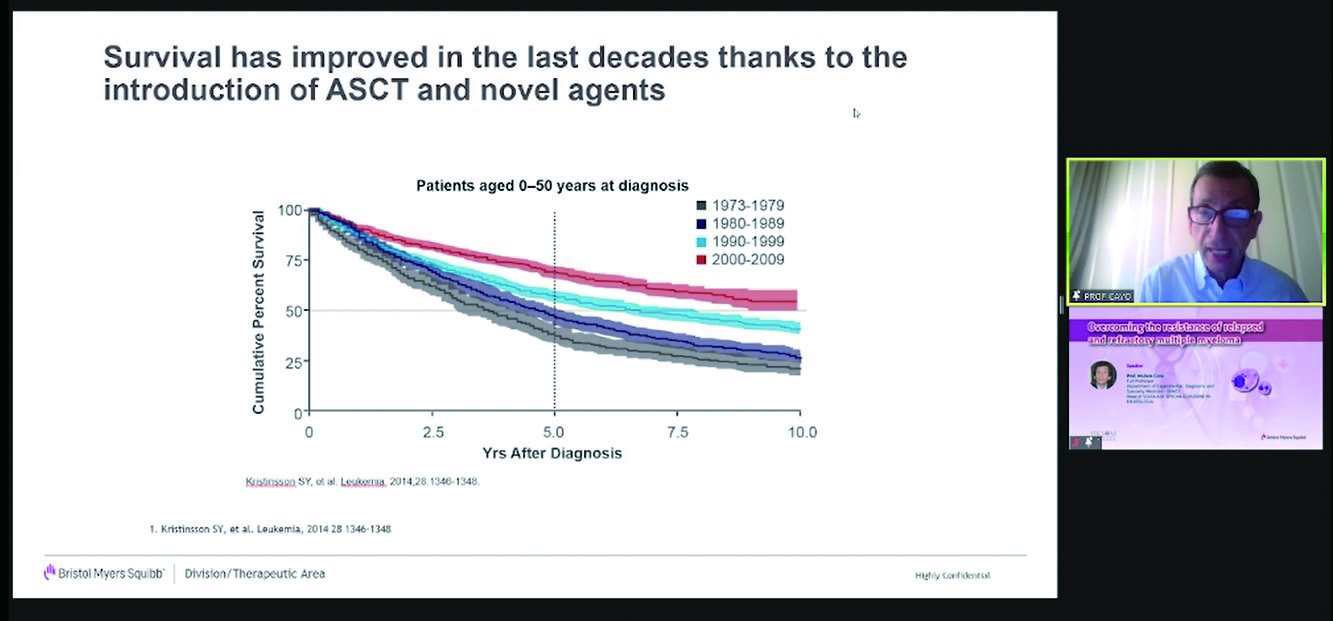
Prof. Cavo outlined the advancement in MM therapies
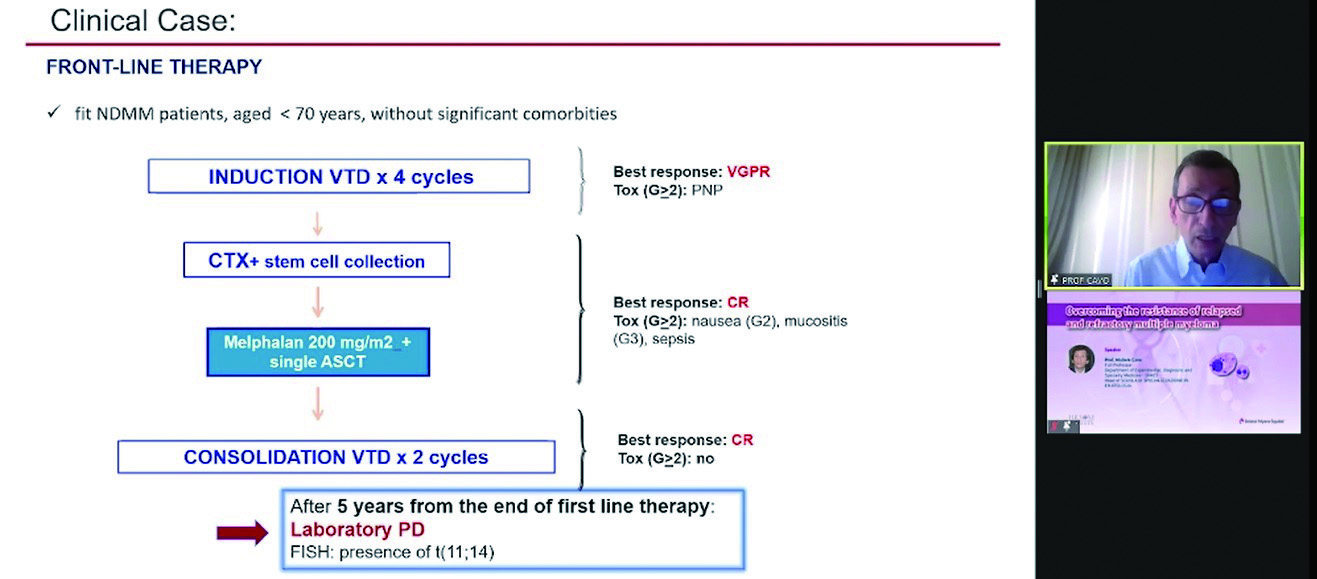
Prof. Cavo shared his clinical experience in managing RRMM
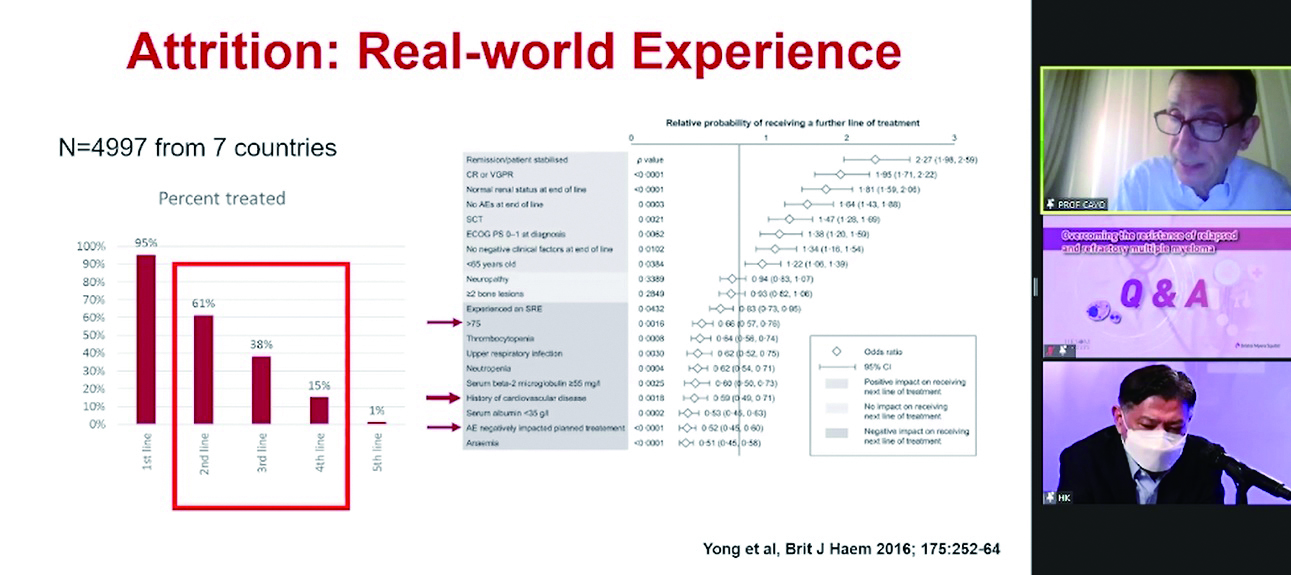
The discussion among Prof. Cavo (upper right) and local clinicians was moderated by Prof. James Chim (lower right)

Dr. Li presented the interim treatment outcomes of his patient with RRMM





